|
2003 Mars Exploration
Rovers: Spirit and Opportunity |
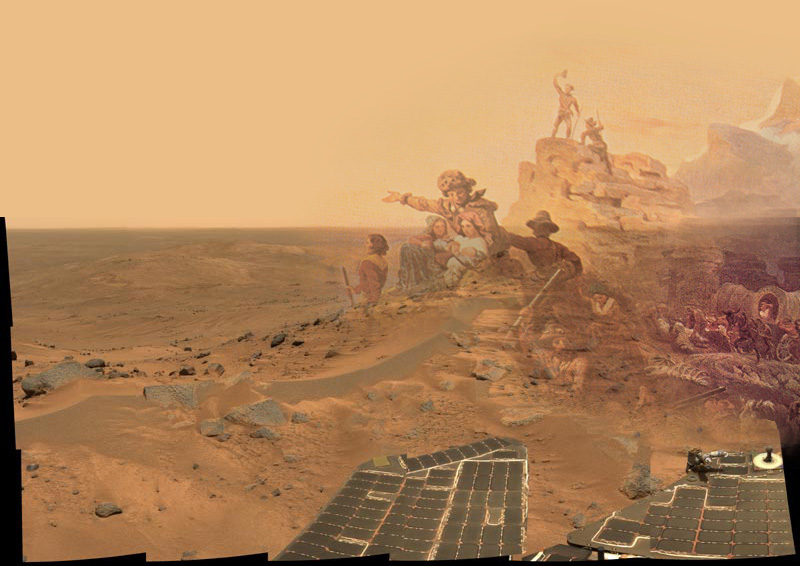

|
Between April and June, 2004, my JPL
office was on one of the three MER project floors so I got an
insider's look at the people and activities of the most successful
Mars project of our time . . . at least until the next one! |
Spirit's Landing, Jan.
4, 2004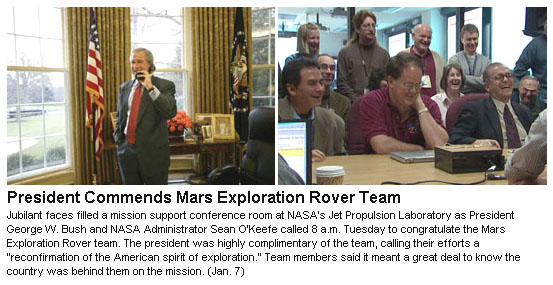 |
Opportunity
Landing, Jan. 24, 2004
 |
|
A week after the landing Vice
President Cheney visited
in person to congratulate the rover
team. Then a few days after that President Bush made his dramatic
announcement at NASA HQ that the US would begin a long-term human
exploration of the Moon, Mars and beyond. It seemed to be partly
related to the success of our rover.
It was an enormous risk trying to
land two big, expensive rovers on Mars. But the Lab succeeded
and helped give birth to a new national space policy in the process.
Lesson learned: don't be afraid to take big risks and then do
the very best you possibly can because if you're successful you
could change the course of history. |
Rover's First Drive
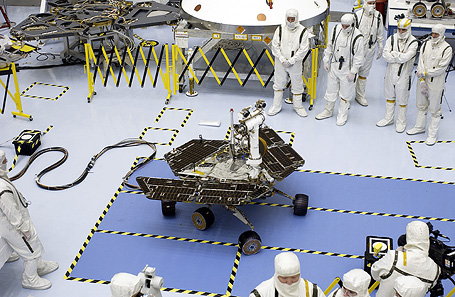
|
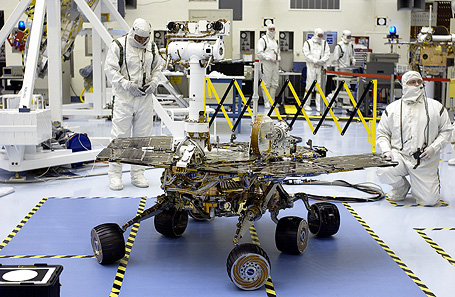 |
|
I was a frequent visitor to the viewing
gallery in the High Bay at JPL so I could watch the rover ATLO
process, meaning the construction and testing of all the hardware
in preparation for Mars. One day I arrived at gallery to find
it almost packed to capacity. A large number of MER team members
were there to watch the rover's first drive (above). So I stood
there with them and watched as "Rover 2" took it's
first drive. I think Rover 2 later became known as "Spirit". |
|
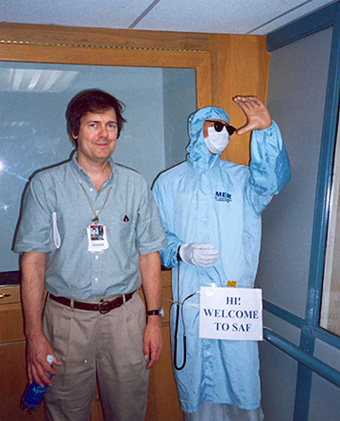
|
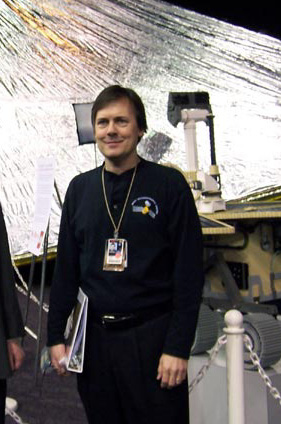 |
|
That's me, haunting the High Bay viewing
gallery at JPL. That mannikin in the clean room "bunny suit"
was temporarily in the viewing gallery so I posed next to him. |
Jan. 2004: That's me having fun
at the Planetary Society's Wild About Mars event celebrating
the landing of Spirit. |
|
My July 2004 geology
trip to Greenland
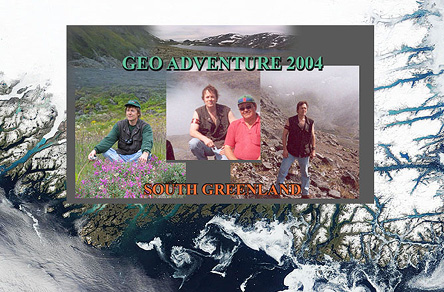
|
A personal quest
for ancient rocks on a cold arctic island
While our two robotic field geologists
Spirit and Opportunity were performing so brilliantly on Mars
I set out for the Arctic island of Greenland in search of rare
fluorescent minerals. It was my turn to play field geologist
and I worked very hard at it. I wanted to show my fellow Greenland
adventurers that I, too, had "the right stuff". Well,
it turns out that I made a discovery in Greenland that none of
the others had made in five years of collecting there! The trip
leader was suitably impressed when I showed him my specimens
of what is probably the rare mineral called tundrite. It was
exciting to be an American explorer in a strange and distant
world. |
|
|
Mars Exploration Rover Art Poster
Click to see full-size |
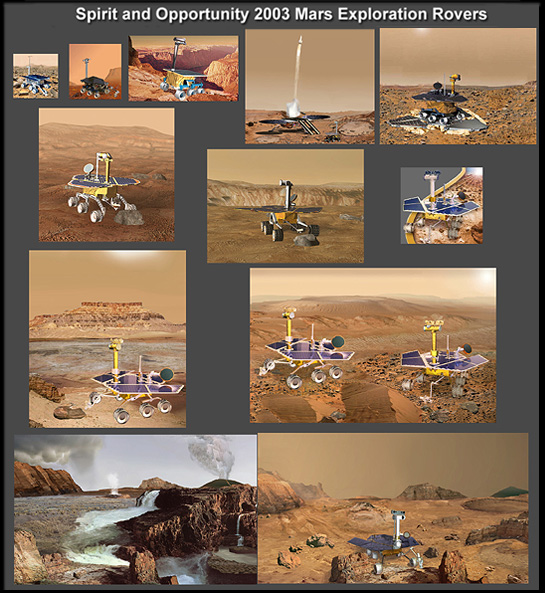 Meanwhile, back
on Mars . . .
Meanwhile, back
on Mars . . .
 Martian dust devil captured
on film by Spirit
Sunset
Martian dust devil captured
on film by Spirit
Sunset
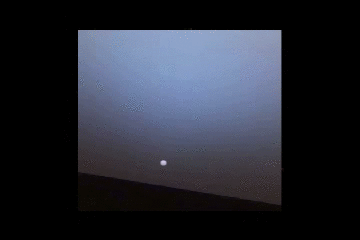 |
|
Opportunity watches sunset
at Meridiani Planum |
Martian Moons Eclipse
the Sun
|
|
|
Animations from March, 2004: Spirit
snapped the larger Martian moon Phobos passing in front of the
Sun on Sol 45, left and Opportunity captured the smaller moon
Deimos as it "transited" the Sun on Sol 39, right. |
|
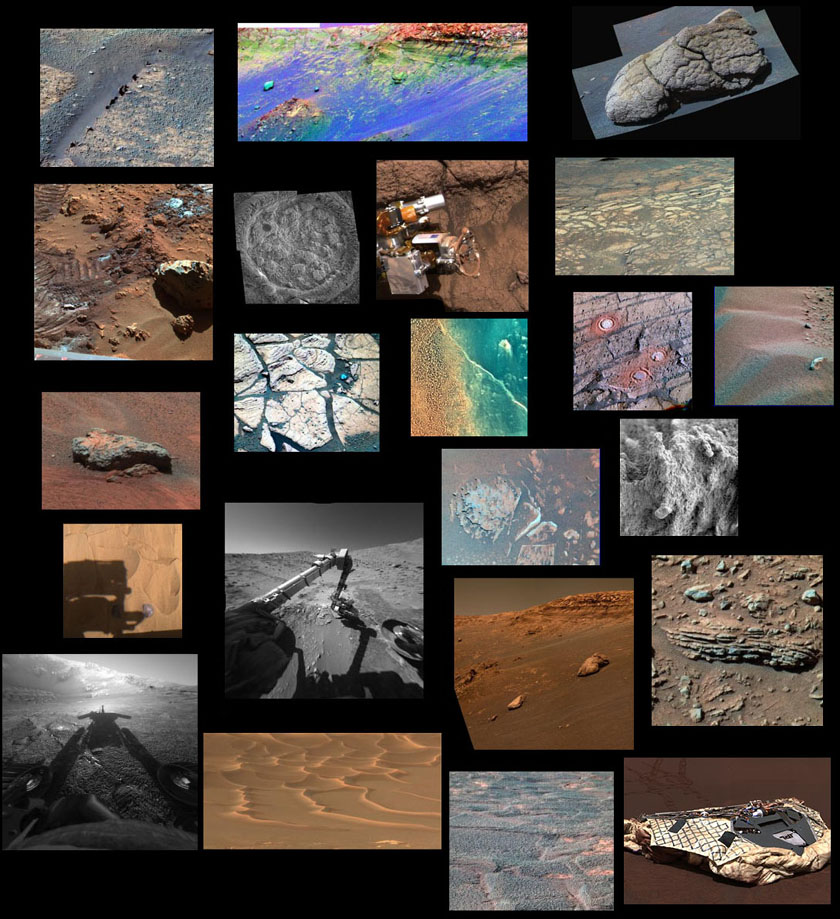
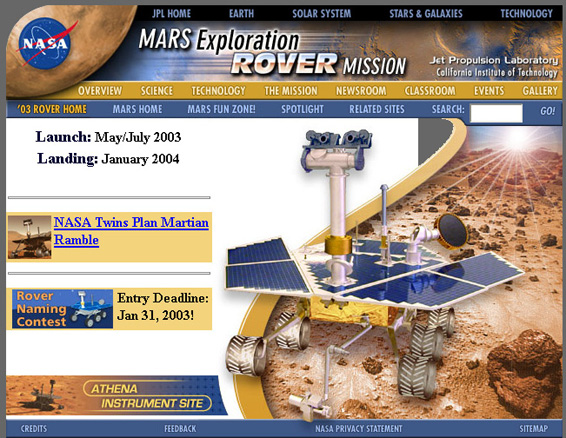 My rover image appeared on
the mission website at JPL.
Spirit and Opportunity
on Mars
My rover image appeared on
the mission website at JPL.
Spirit and Opportunity
on Mars
|
|
|
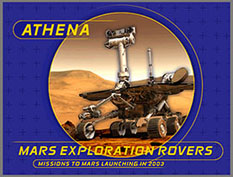 |
|
See the latest pictures from Spirit
and Opportunity in the Planetary Photojournal |
|
Mars Rovers JPL website |
 MER
Color Stereo Images of Gusev Crater and Meridiani Planum
MER
Color Stereo Images of Gusev Crater and Meridiani Planum |
|
Note: Computer
animator Dan Maas created the amazing MER rover model widely
seen in his animations and still-images. Eventually I had no
choice but to use versions of his rover (such as in the two stamp-like
MER icon images at the top right of this page). |
The Mars Exploration Rover
model at Cornell
|
That's astrogeologist Jim Bell next
to the MER model. The 2003 rovers are considerably bigger and
more capable than the little Sojourner rover. |
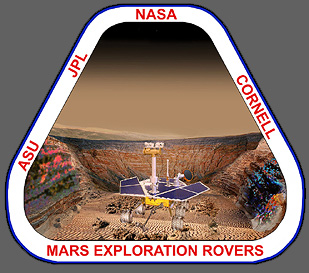
|
|
|
I submitted this "MER science logo"
to the rover team logo contest but it wasn't selected. In fact
no particular logo was ever selected. No one knew at the time
but the rovers did venture down into Martian craters, just as
I depicted. The color on the crater walls are simulated Mini-TES
data. |
Landing site selection was a very important
task. The trick was to find two safe landing sites within the
designated equatorial region that are still geologically interesting.
You may click on the landing site link above to learn more about
the site selection process but it's very technical. |
|